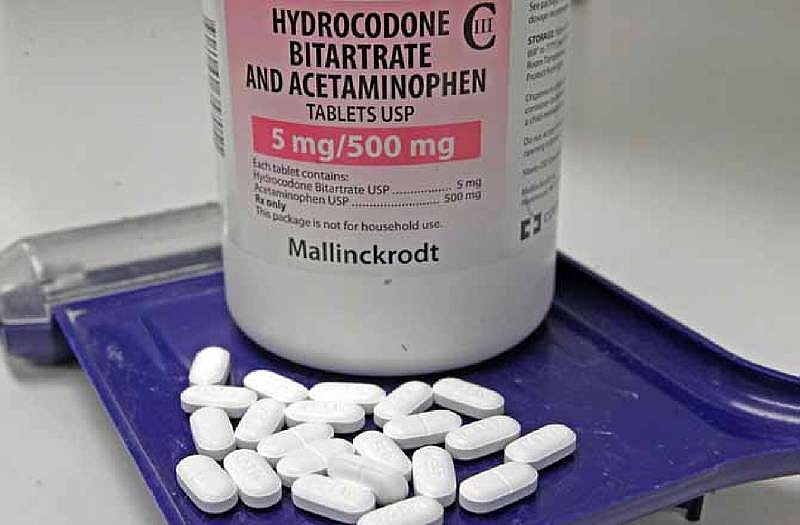Discussion about opioid abuse swirled through the Capitol on Wednesday, emphasizing the need for a statewide prescription drug monitoring program (PDMP).
A statewide prescription drug monitoring program would allow health care professionals, including pharmacists and dentists, to access information about a patient's prescription narcotic history.
Students from Calvary Lutheran High School told the News Tribune they support the state's effort for a PDMP because they would like a change in the level of drug abuse they see in their local community.
Rep. Holly Rehder, R-Sikeston, sat in on discussions with the students and legislators who were in support of the PDMP.
In a committee hearing on the Narcotics Act bill sponsored by Sen. Dave Schatz, R-Sullivan, Rehder told the committee how she has seen drug abuse from both sides - growing up in a family that had a history of drug addiction while helping her own daughter to combat opioid abuse for 13 years. Her daughter became addicted after being prescribed Lorcet, a form of hydrocodone.
"When a physician can look at their patient's narcotic history, they can make the best call for the patient, and that's what we really want," Rehyder said. "Yes, we want to be able to catch the doctor shoppers, so that we don't have a plethora of pills out on the street. But more importantly though, we want the physician to be able to say we have a problem here and start looking at other paths."
Steve Russ, a pharmacist and pastor from Nevada, Missouri, identified himself as a 16-year drug addict in recovery, illustrating how law-abiding citizens can get caught up in prescription drug abuse.
"Today, I am working on the front line of addiction issues dealing with families on a day-to-day basis," Russ said. "This (PDMP) won't solve the problem, but this is a piece to the puzzle that can help."
If the bill were to pass, the Department of Health and Senior Services would be the regulating agency and it would cost the state a little more than $800,000. This figure is a drop in the bucket compared to the $23 million it costs taxpayers to treat infants born with opioids in their system, according to the Missouri Hospital Association.
Other proponents of the Narcotic Act bill include the Missouri Hospital Association, Missouri Association of Insurance Agents, Missouri State Troopers Association, Missouri Biotechnology Association, physicians and pharmacists across the state, CVS Pharmacy, and more.
"I'm not filing this bill because organizations and associations are necessarily supporting it. I'm filing it because the people in my district support it," Schatz said.
Mitch Hubbard, a private resident from Callaway County, said he opposes the idea of government regulating narcotic usage.
"A PDMP does not work to solve the problem of tragedies," Hubbard said. "There has to be a point of personal responsibility and freedom. That's where we need to draw the line."
The Schatz bill did not make it out of committee, but an alternative to PDMP sponsored by Sen. Rob Schaaf, R-St.Louis, did.
Under Schaaf's bill, health care physicians would not have access to the information in the PDMP, but would only be able to input information into the database.

